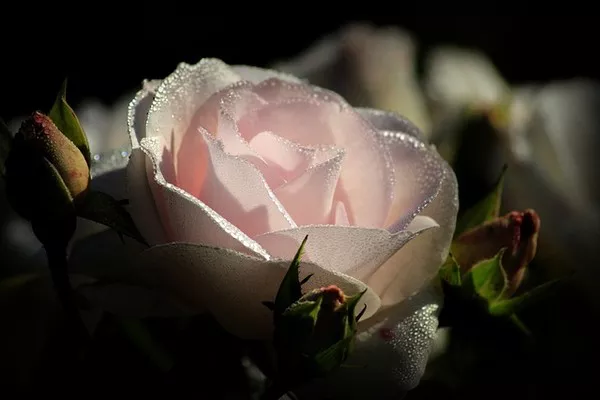In a span of just eight months, Linxia Yinong Agriculture and Animal Husbandry Investment Co successfully completed a comprehensive rose facility in Fuhan township, Gansu province, China, marking a significant milestone in the region’s Flower Port initiative. Covering approximately 200,000 square meters in the Linxia Hui autonomous prefecture, this expansive greenhouse has earned the local moniker of the “rose gigafactory.”
Situated on 16 hectares in the loess plateau of Linxia, the greenhouse takes advantage of the region’s distinctive climate, characterized by significant temperature fluctuations between morning and evening—optimal conditions for the cultivation of roses.
A distinctive feature of this innovative greenhouse is the utilization of Planti mid-haze diffuse glass with double layers of AR coating. According to Chris Lee from Planti, this represents the first instance of AR-coated glass being employed in a scaled project in Gansu specifically designed for growing roses. Lee explains, “During the scheduling period, the project’s consultants had been talking with us about the glass options and performances. Before this, they had been running a few smaller rose greenhouses with regular low iron glass covers. Finally, they turned to AR-coated diffuse glass and would like to compare it with old ones; the project manager said it takes at least five rotations to see the difference. It turned out to be a successful try; they stayed with diffuse glass for the other two smaller projects.” This marks a meaningful milestone for the company, which plans to construct additional rose greenhouses in the years to come, all utilizing diffuse glass as the cover material.
In addition to cutting-edge glass technology, the greenhouse incorporates modern agricultural systems, including an auto-fogging system, water and nutrition recycling system, and an energy screen system inspired by Dutch design and technology. These features underscore the project’s commitment to green, energy-conserving, and sustainable development principles. Leveraging state-of-the-art agricultural technologies such as an automatic temperature and humidity control system and an integrated smart irrigation and fertilization system, the facility can yield an impressive 200,000 fresh-cut roses daily. The roses produced are destined for both the domestic market and export, with shipments reaching Moscow and Kazakhstan. The project exemplifies the successful convergence of advanced agricultural techniques and innovative infrastructure, positioning it as a notable player in the evolving landscape of modern rose cultivation.


